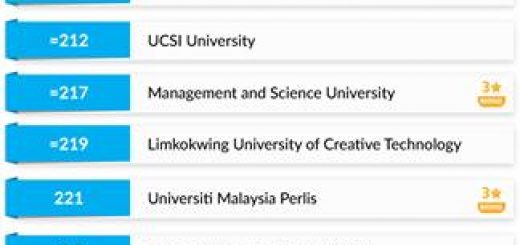Pertanyaan-pertanyaan Ujian Disertasi Doktor
Possible viva questions
Overview
- Summarise your thesis in a sentence.
- Does the title represent the content?
- Describe your thesis in brief.
- How did you decide to order your thesis?
- What is your overall argument?
- Summarise the context.
- Why did you choose this topic?
- Why is this topic important, and to whom is it relevant?
- What are the key findings?
- What is original here; what are your contributions to knowledge?
- What justifies this thesis as a doctorate?
Literature
- Where did you draw the line on what you included in your literature review?
- Where did you draw the line on what you included in the theoretical literature?
- How did the literature inform your choice of topic and the thesis overall?
- What three publications would you say have been most influential in your work?
- Where does your work fit into the literature?
- Who are the key names in this area?
- Who are the project’s key influences?
- How does your work differ from theirs?
- Do the findings confirm, extend, or challenge any of the literature?
- How does your work connect to that of your reviewers?
Research Design and Methodology
- Summarise your research design.
- Did you think about applying a different design?
- What are the limitations of this kind of study?
- Is there anything novel in your method?
- What problems did you have?
- How did you develop your research questions?
- Did the research questions change over the course of the project?
- How did you translate the research questions into a data collection method?
- What are the philosophical assumptions in your work?
- Where are YOU in this study?
- Describe your sample.
- How did you recruit your sample?
- What boundaries did you set on your sample?
- What are the weaknesses of your sample?
- What boundaries did you set on your data collection?
- What are the strengths and weaknesses of your data?
- What other data would you like (or have liked) to collect?
- What is the theoretical framework in this study?
- Why did you choose this conceptual framework?
- Did you think about using any other theories, and if so, why did you reject them?
- What ethical procedures did you follow?
- What ethical issues arose in the course of your study and how did you address them?
Analysis
- Describe your frame of analysis.
- How did you construct this framework?
- What didn’t you include in the framework?
- What problems did you have in the analysis?
- Did you combine induction and deduction in your analysis? Can you share some examples?
- Describe the findings in more detail.
- Briefly summarise the findings as they relate to each of the research questions.
- How do you think the theoretical framing was helpful? Can you share some examples?
- What other data could you have included, and what might it have contributed?
- Could the findings have been interpreted differently?
Review
- What are the strengths and weakness of your study?
- What sense do you have of research being a somewhat untidy, or iterative and constantly shifting process?
- How confident are you in your findings and conclusions?
- What the implications of your findings?
- How has the context changed since you conducted your research?
- Where do your findings sit in the field in general?
- How do you see this area developing over the next 5-10 years?
- Where does your work fit within this?
- To whom is your work relevant?
- What haven’t you looked at, and why not?
- What, if any, of your findings are generalisable?
- How would you like to follow this project up with further research?
- What would you publish from this research, and in which journals?
Reflection
- How did the project change as you went through?
- How has your view of the area changed as you have progressed through your research?
- How did your thinking change over the course of the project?
- How have you changed as a result of undertaking this project?
- What did you enjoy about your project?
- What are you proudest of in the thesis?
- What were the most difficult areas?
- What surprised you the most?
- If you started this study again, what would you do differently?
.
Top 40 Potential Viva Questions
1. Can you start by summarising your thesis?
2. Now, can you summarise it in one sentence?
3. What is the idea that binds your thesis together?
4. What motivated and inspired you to carry out this research?
5. What are the main issues and debates in this subject area?
6. Which of these does your research address?
7. Why is the problem you have tackled worth tackling?
8. Who has had the strongest influence in the development of your subject area in theory and practice?
9. Which are the three most important papers that relate to your thesis?
10. What published work is closest to yours? How is your work different?
11. What do you know about the history of [insert something relevant]?
12. How does your work relate to [insert something relevant]?
13. What are the most recent major developments in your area?
14. How did your research questions emerge?
15. What were the crucial research decisions you made?
16. Why did you use this research methodology? What did you gain from it?
17. What were the alternatives to this methodology?
18. What would you have gained by using another approach?
19. How did you deal with the ethical implications of your work?
20. How has your view of your research topic changed?
21. How have you evaluated your work?
22. How do you know that your findings are correct?
23. What are the strongest/weakest parts of your work?
24. What would have improved your work?
25. To what extent do your contributions generalise?
26. Who will be most interested in your work?
27. What is the relevance of your work to other researchers?
28. What is the relevance of your work to practitioners?
29. Which aspects of your work do you intend to publish – and where?
30. Summarise your key findings.
31. Which of these findings are the most interesting to you? Why?
32. How do your findings relate to literature in your field?
33. What are the contributions to knowledge of your thesis?
34. How long-term are these contributions?
35. What are the main achievements of your research?
36. What have you learned from the process of doing your PhD?
37. What advice would you give to a research student entering this area?
38. You propose future research. How would you start this?
39. What would be the difficulties?
40. And, finally… What have you done that merits a PhD?
About Adi Susilo Jahja
Twitter •




